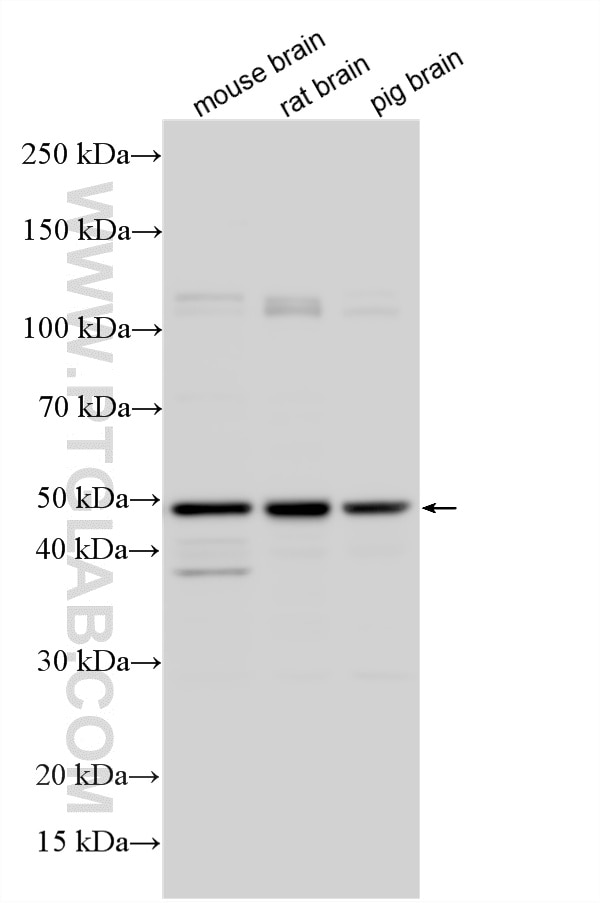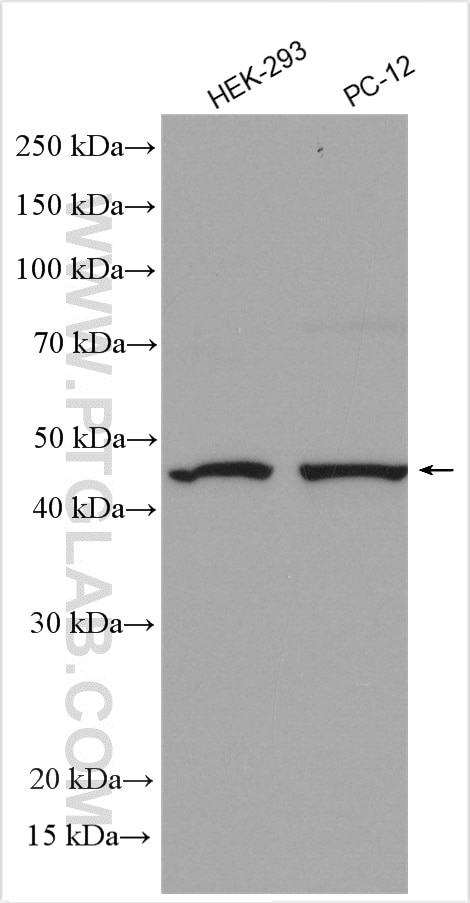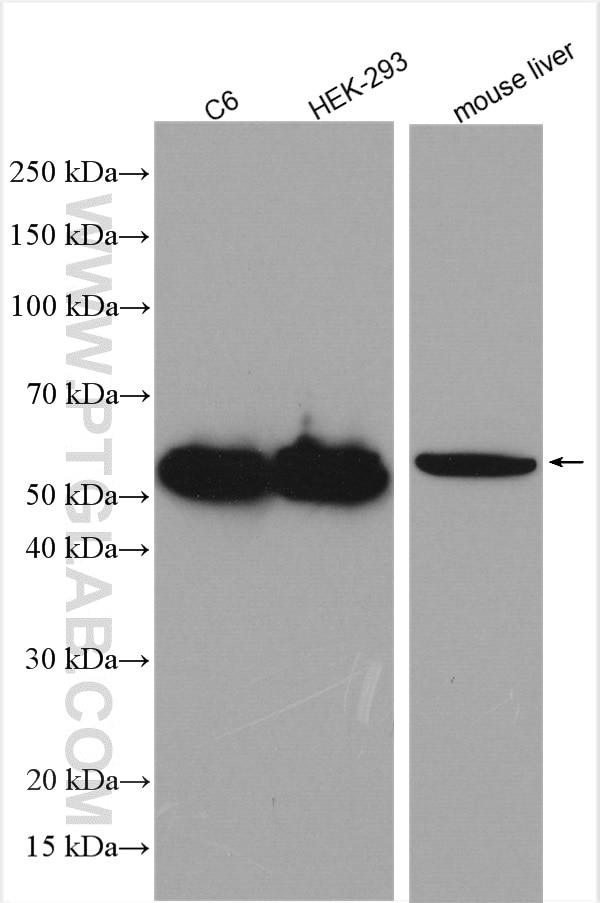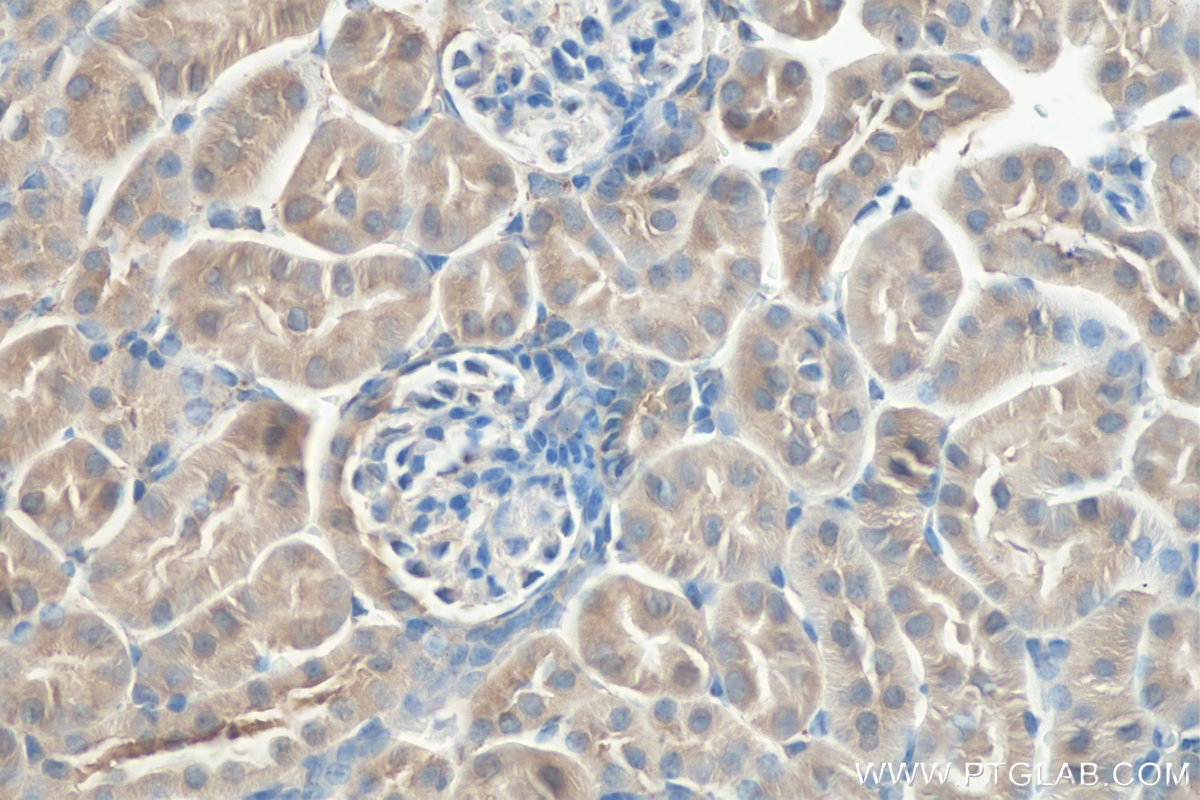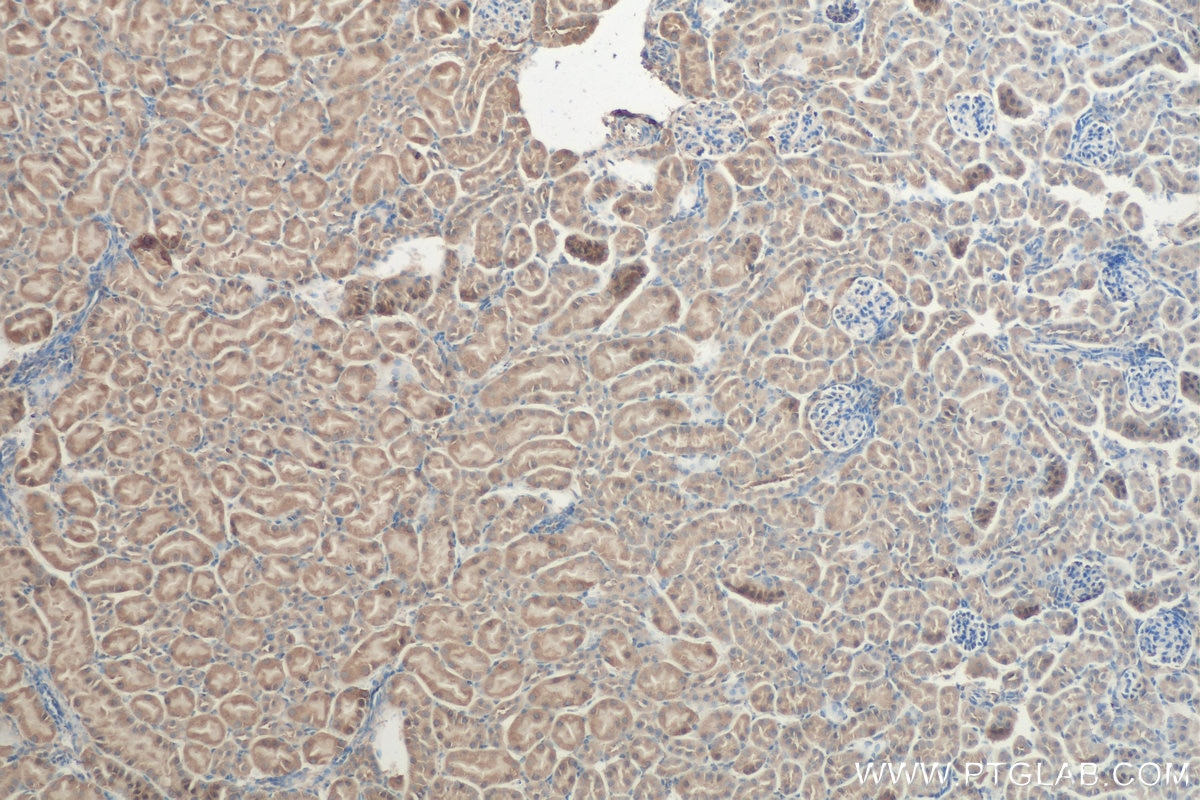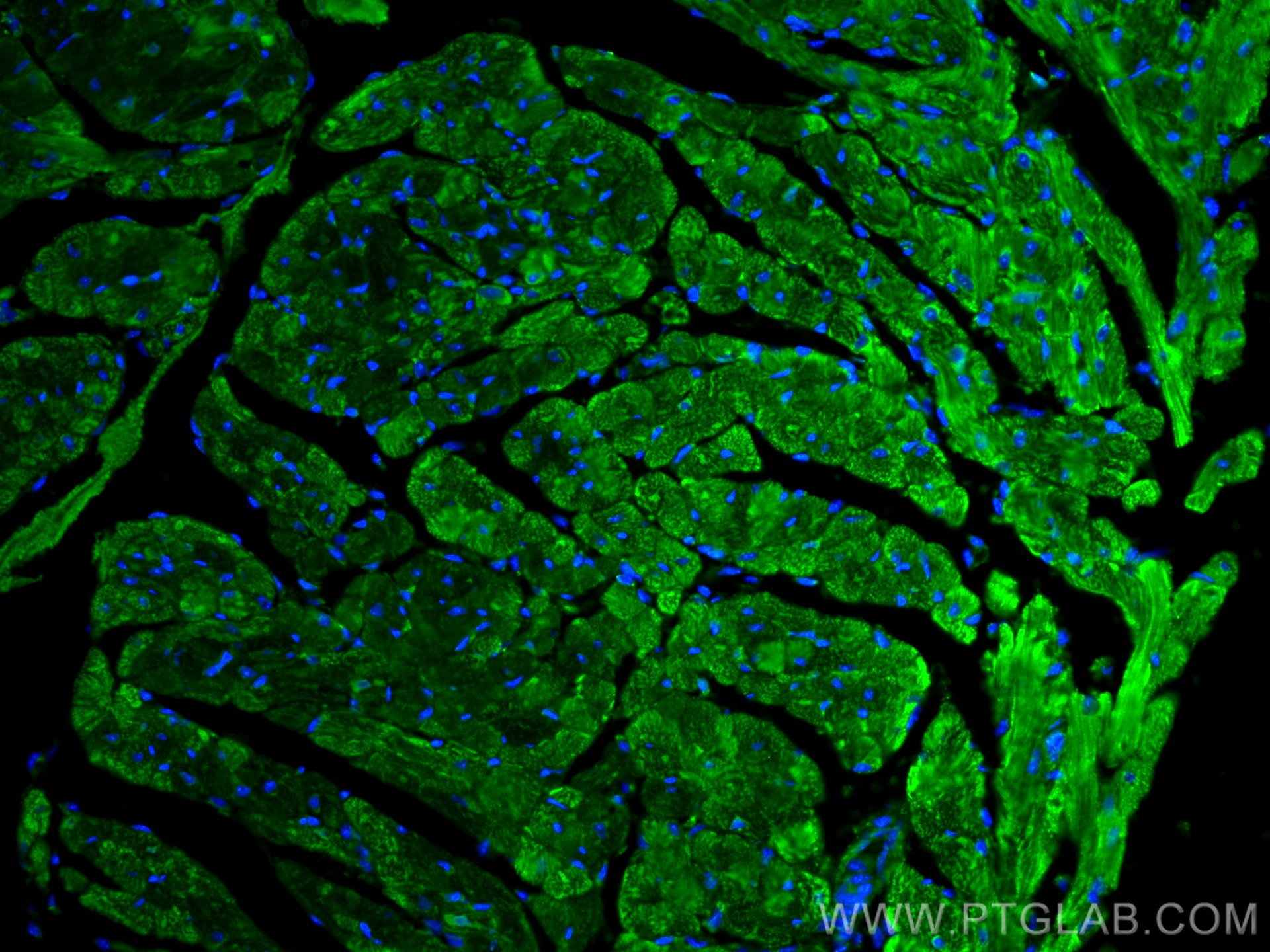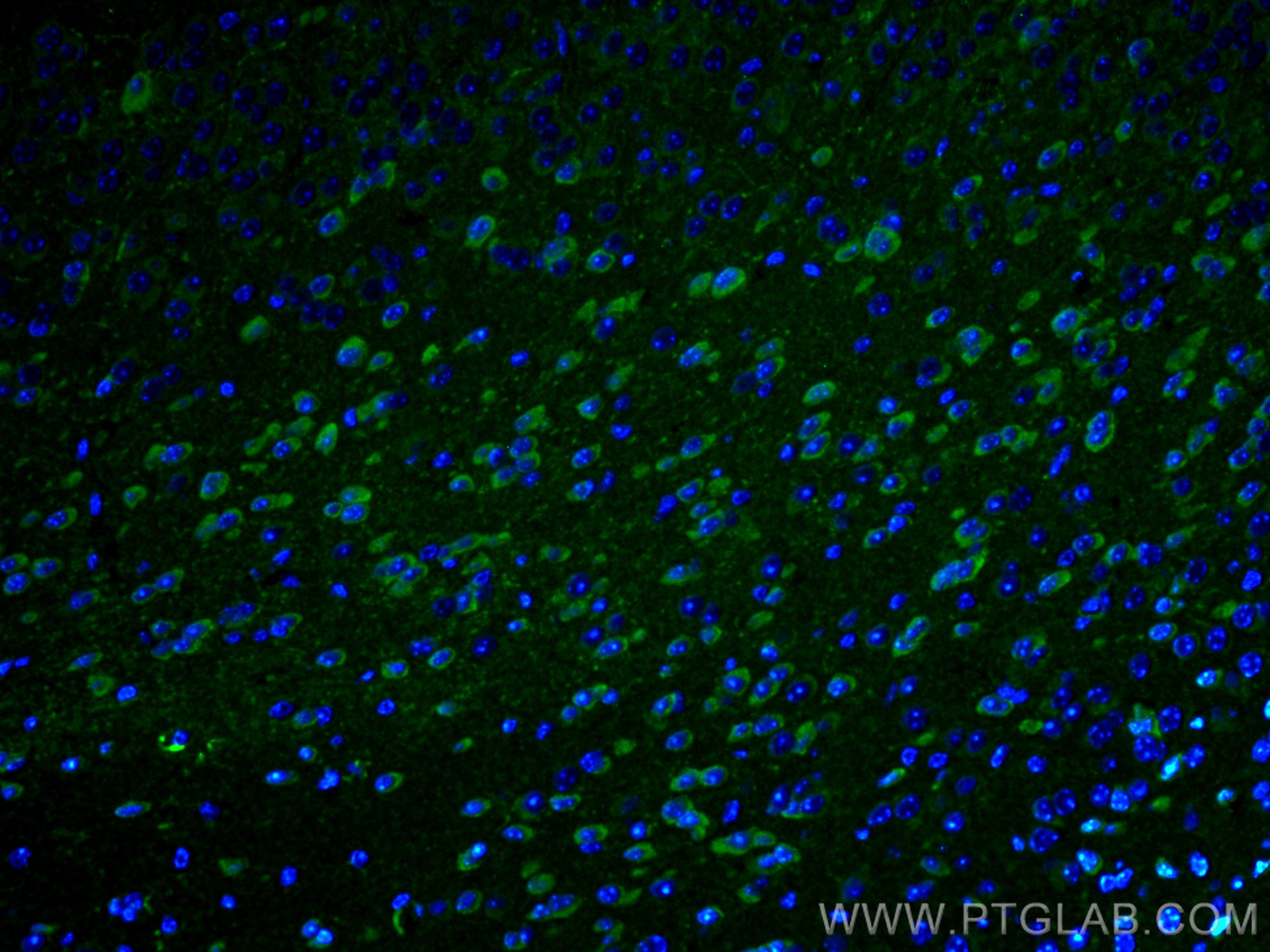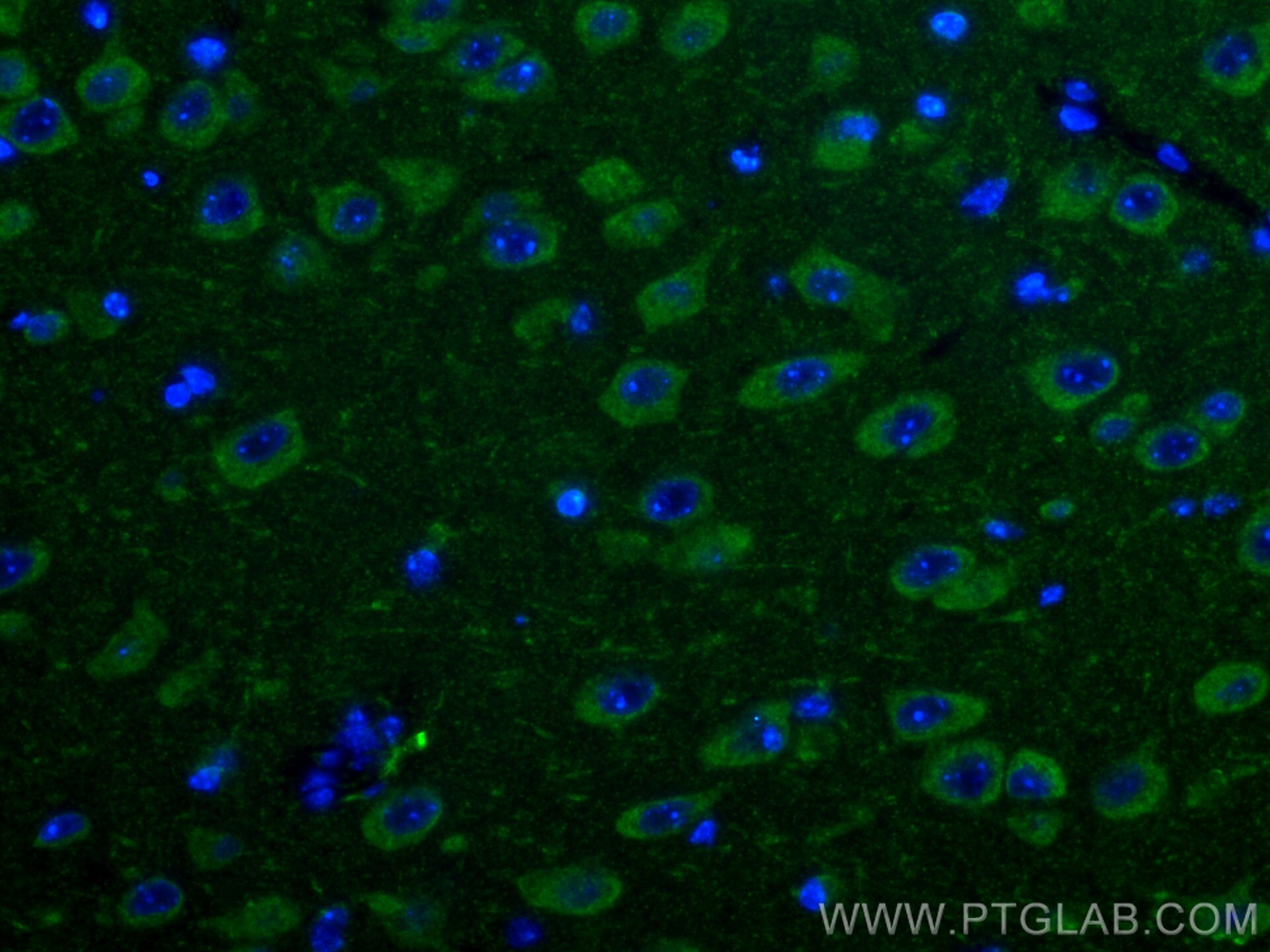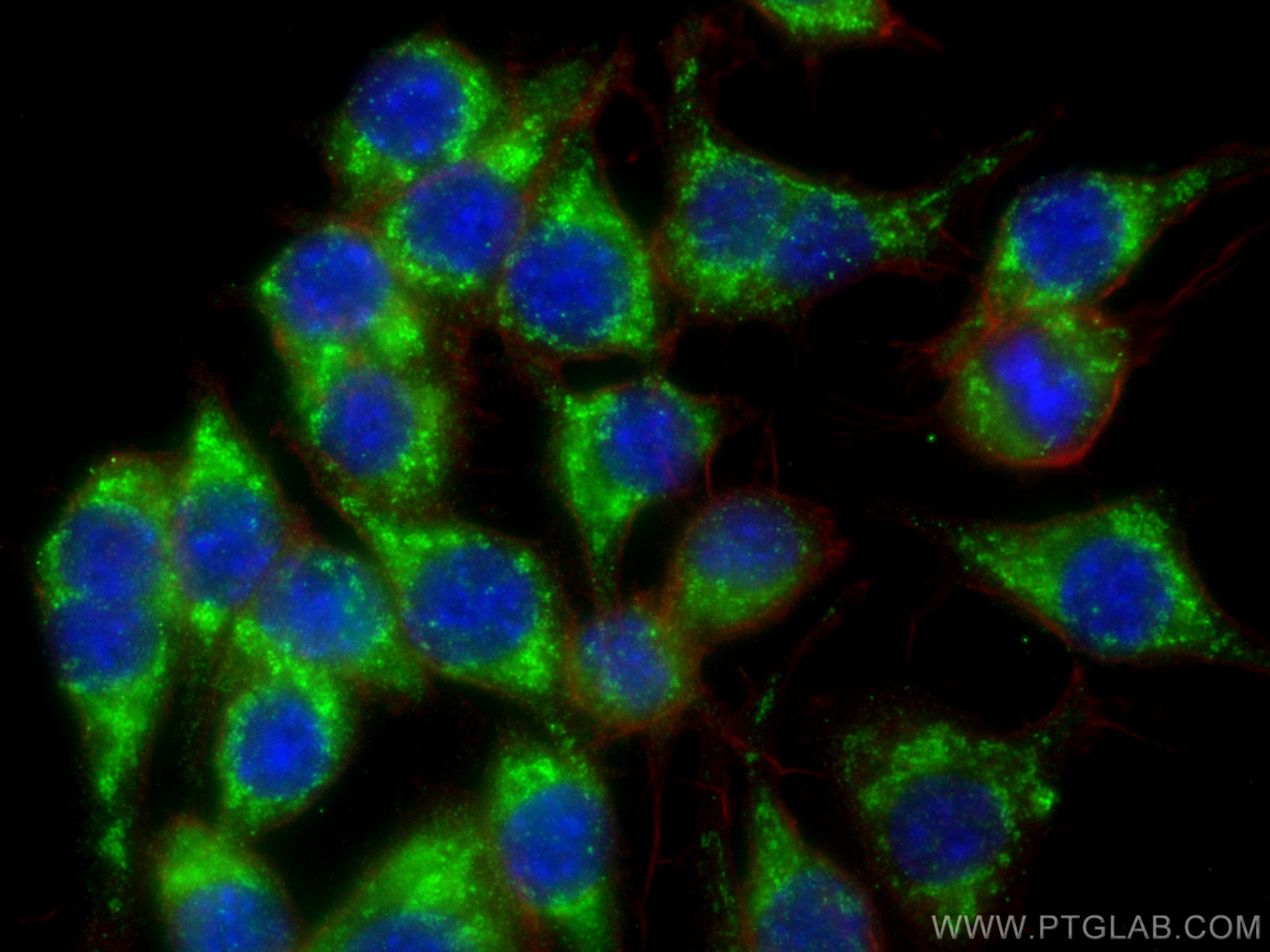- Featured Product
- KD/KO Validated
PARK2/Parkin Polyklonaler Antikörper
PARK2/Parkin Polyklonal Antikörper für WB, IHC, IF/ICC, IF-P, ELISA
Wirt / Isotyp
Kaninchen / IgG
Getestete Reaktivität
Hausschwein, human, Maus, Ratte und mehr (4)
Anwendung
WB, IHC, IF/ICC, IF-P, IP, CoIP, ELISA
Konjugation
Unkonjugiert
Kat-Nr. : 14060-1-AP
Synonyme
Geprüfte Anwendungen
| Erfolgreiche Detektion in WB | Maushirngewebe, C6-Zellen, HEK-293-Zellen, Mauslebergewebe, PC-12-Zellen, Hausschwein-Hirngewebe, Rattenhirngewebe |
| Erfolgreiche Detektion in IHC | Mausnierengewebe Hinweis: Antigendemaskierung mit TE-Puffer pH 9,0 empfohlen. (*) Wahlweise kann die Antigendemaskierung auch mit Citratpuffer pH 6,0 erfolgen. |
| Erfolgreiche Detektion in IF-P | Mausherzgewebe, Maushirngewebe |
| Erfolgreiche Detektion in IF/ICC | RAW 264.7-Zellen |
Empfohlene Verdünnung
| Anwendung | Verdünnung |
|---|---|
| Western Blot (WB) | WB : 1:1000-1:8000 |
| Immunhistochemie (IHC) | IHC : 1:50-1:500 |
| Immunfluoreszenz (IF)-P | IF-P : 1:50-1:500 |
| Immunfluoreszenz (IF)/ICC | IF/ICC : 1:200-1:800 |
| It is recommended that this reagent should be titrated in each testing system to obtain optimal results. | |
| Sample-dependent, check data in validation data gallery | |
Veröffentlichte Anwendungen
| KD/KO | See 12 publications below |
| WB | See 345 publications below |
| IHC | See 40 publications below |
| IF | See 83 publications below |
| IP | See 5 publications below |
| CoIP | See 6 publications below |
Produktinformation
14060-1-AP bindet in WB, IHC, IF/ICC, IF-P, IP, CoIP, ELISA PARK2/Parkin und zeigt Reaktivität mit Hausschwein, human, Maus, Ratten
| Getestete Reaktivität | Hausschwein, human, Maus, Ratte |
| In Publikationen genannte Reaktivität | human, Affe, Hausschwein, Huhn, Kaninchen, Maus, Ratte, Rind |
| Wirt / Isotyp | Kaninchen / IgG |
| Klonalität | Polyklonal |
| Typ | Antikörper |
| Immunogen | PARK2/Parkin fusion protein Ag5092 |
| Vollständiger Name | Parkinson disease (autosomal recessive, juvenile) 2, parkin |
| Berechnetes Molekulargewicht | 52 kDa |
| Beobachtetes Molekulargewicht | 42-52 kDa |
| GenBank-Zugangsnummer | BC022014 |
| Gene symbol | Parkin |
| Gene ID (NCBI) | 5071 |
| Konjugation | Unkonjugiert |
| Form | Liquid |
| Reinigungsmethode | Antigen-Affinitätsreinigung |
| Lagerungspuffer | PBS with 0.02% sodium azide and 50% glycerol |
| Lagerungsbedingungen | Bei -20°C lagern. Nach dem Versand ein Jahr lang stabil Aliquotieren ist bei -20oC Lagerung nicht notwendig. 20ul Größen enthalten 0,1% BSA. |
Hintergrundinformationen
Parkin, a RING-type E3 ubiquitin-protein ligase, is involved in the ubiquitination pathway and contributes to protection from neurotoxicity induced by unfolded protein stresses. Its ubiquitin-protein ligase activity promotes the degradation of a variety of proteins including itself. Mutations in Parkin are implicated in the pathogenesis of autosomal recessive familial Parkinson's disease. It has 8 isoforms produced by alternative splicing with molecular weights of 24, 31, 36 and 42-52 kDa. Sometimes an additional band of 70 kDa or 110 kDa may be detected, which is caused by ubiquitination modification or formation of Parkin complex (PMID: 10976934, PMID: 18190519).
Protokolle
| PRODUKTSPEZIFISCHE PROTOKOLLE | |
|---|---|
| WB protocol for PARK2/Parkin antibody 14060-1-AP | Protokoll herunterladen |
| IHC protocol for PARK2/Parkin antibody 14060-1-AP | Protokoll herunterladenl |
| IF protocol for PARK2/Parkin antibody 14060-1-AP | Protokoll herunterladen |
| STANDARD-PROTOKOLLE | |
|---|---|
| Klicken Sie hier, um unsere Standardprotokolle anzuzeigen |
Publikationen
| Species | Application | Title |
|---|---|---|
Nat Cell Biol Ammonia-induced lysosomal and mitochondrial damage causes cell death of effector CD8+ T cells | ||
Nat Commun Augmented temperature fluctuation aggravates muscular atrophy through the gut microbiota | ||
Acta Pharm Sin B Histone deacetylase inhibitors inhibit cervical cancer growth through Parkin acetylation-mediated mitophagy. | ||
Acta Pharm Sin B Engineering cannabidiol synergistic carbon monoxide nanocomplexes to enhance cancer therapy via excessive autophagy | ||
Autophagy Increased mitochondrial fission promotes autophagy and hepatocellular carcinoma cell survival through the ROS-modulated coordinated regulation of the NFKB and TP53 pathways. |
Rezensionen
The reviews below have been submitted by verified Proteintech customers who received an incentive for providing their feedback.
FH Javier (Verified Customer) (09-09-2025) | Perfect antibody for western blotting assay.
|
FH QX (Verified Customer) (05-08-2025) | It is okay to detect endogenous PARK2 with the right around 52 kd MW although there are some nonspecific bands,
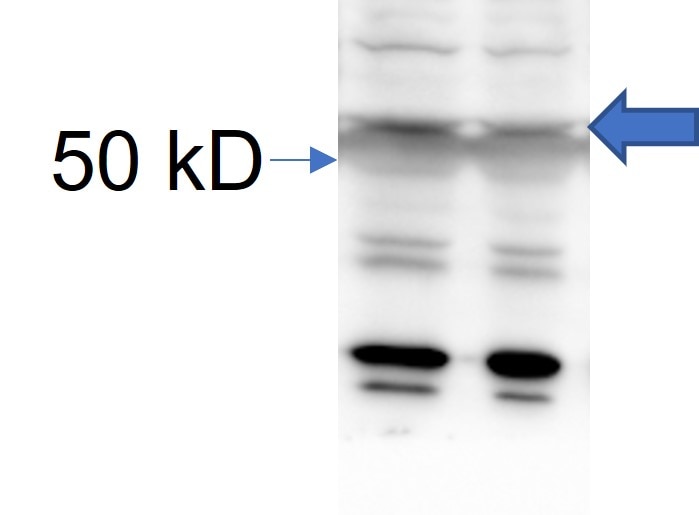 |
FH Ajte (Verified Customer) (03-08-2022) | It works well for me
|
FH Elyssa (Verified Customer) (11-11-2019) | This antibody worked well for me for one cell line (I had tried detecting the protein in 3 cells lines, and only one cell line appeared to have expression. However, I have not looked into this further and cannot say if this has to do with the antibody, or differential expression across lines). Overall, I was happy with the antibody.
|
